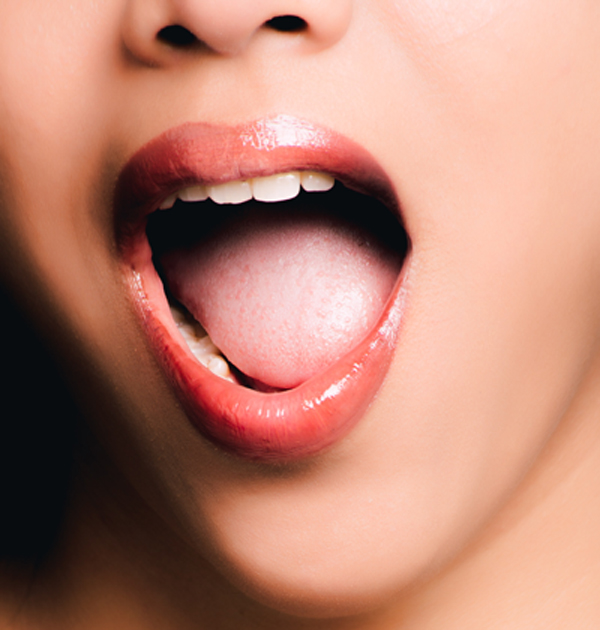Dr Katz comments on Mouth Cancer
NewsPosted by: Dental Design 13th November 2018

What causes mouth cancer?
Whilst mouth cancer is a disease that is directly related to tooth decay and gum disease (both of which are impacted by the growth of anaerobic bacteria in the mouth), lifestyle choices play a huge part in increasing your chances of developing the disease and the two leading causes in the UK are tobacco and alcohol.
Tobacco is very much still considered the main cause of mouth cancer and drinking to excess can increase the risk of mouth cancer by four times. The Mouth Cancer Foundation states that ‘those who smoke and drink are up to 30 times more likely to develop mouth cancer’. A lesser known risk is mouth rinses that contain alcohol when used over a long period of time could in fact contribute to the problem. So, the ‘burn’ you feel when you’re rinsing with a mouthwash containing alcohol is not only killing the bad breath bacteria, it may also be damaging the delicate oral tissue in your mouth and increasing your risk of oral sores and oral cancer.
Other contributing factors include chewing tobacco or other smokeless tobacco products, a poor diet and the human papilloma virus (HPV).
When it comes to mouth cancer, what should we be looking out for?
Mouth cancer can develop on the tongue’s surface, roof of the mouth, inside of the cheeks, lips and gums. Recent research by Mouth Cancer Action has identified that ‘A worrying number of Brits cannot identify the three most likely potential early warning signs of mouth cancer – lumps and swelling (41%), non-healing mouth ulcers (44%) and red patches in the mouth (60%).
Bearing these statistics in mind it’s essential to check for these symptoms regularly and visit your dentist if these areas don’t heal within three weeks. As with most forms of cancer, early detection is key and can dramatically affect the long-term diagnosis. If mouth cancer is detected early, the prognosis is usually fairly good, so it’s crucial that you make regular appointments with your dentist as they will be able to examine your mouth thoroughly and spot any areas of concern quickly.
For those who are already undergoing radiation treatment for mouth cancer, severe dry mouth may result due to irradiation of the salivary glands. In those cases, patients should consider an oral rinse to help restore saliva production such as the Breath Company’s Dry Mouth Rinse (£14.00, 500ml from Boots stores and www.boots.com) which contains beneficial salivary enzymes.
How does mouth cancer spread?
Mouth cancer can spread both through the lymphatic system and also directly out of the mouth and into nearby tissues such as surrounding skin or the back of the jaw.
Who is more likely to develop mouth cancer – men or women?
Mouth cancer and its symptoms do not discriminate between the sexes, and although symptoms can vary between individuals, men and women should look for the same things. Mouth cancer can affect anyone, but is twice as common in men than women and approximately 91% of all diagnoses are linked to lifestyle. The HPV infection is thought to be associated with the majority of cases that occur in younger people (under 50).
What can I do to minimise my risk of developing mouth cancer?
- Visit your dental professional regularly and make an appointment if you spot any changes in your mouth or any signs of swelling, lumps, red patches or mouth ulcers that don’t heal within three weeks. They will be able to check your mouth for any warning signs/early symptoms and advise the best course of action.
- Keep your mouth and gums healthy by sticking to a robust oral hygiene regime – brush and floss regularly. Brushing helps eradicate the plaque and bacteria on your teeth, however some toothpaste contains sodium lauryl sulphate (SLS), a soapy detergent that creates foam but has no cleaning benefit. The additive has recently been linked to serious side effects including canker sores. Flossing is an extra step but an important one, as it helps clean in-between the teeth where toothbrushes often miss. In addition, regular use alcohol-free mouth rinses such as The Breath Company Healthy Gums Oral Rinse (£14.00, 500ml, www.boots.com and Boots stores nationwide) will help calm the gum area and work to both eliminate germs associated with gum disease and reduce the formation of biofilm which leads to plaque and tartar build-up. It’s important to steer clear of alcohol-based mouthwashes as these can exacerbate problems and cause dry mouth.
- Take a good look at your lifestyle and make the necessary changes to protect your oral health. Quitting smoking and limiting alcohol consumption will greatly decrease the risk of developing mouth cancer and will contribute to healthier gums and mouth. Eat a balanced, healthy diet with at least five portions of fruit and vegetables a day.
Comments from Dr. Harold Katz, dentist, bacteriologist and developer of the The Breath Company (www.thebreathco.com)
Dr. Katz is an internationally recognised expert in the fields of bad breath, taste disorders, tonsil stones and dry mouth. Known as the ‘Bad Breath Guru’, he has helped millions of people around the world to neutralise their bad breath problems, even publishing, ‘The Bad Breath Bible’, a book containing the definitive guide to the causes and solutions to prevent bad breath and taste disorders, which today has sold 1,000,000 copies in print and millions of downloads. Dr. Harold Katz is also the owner of leading oral health company, The Breath Co www.thebreathco.com









